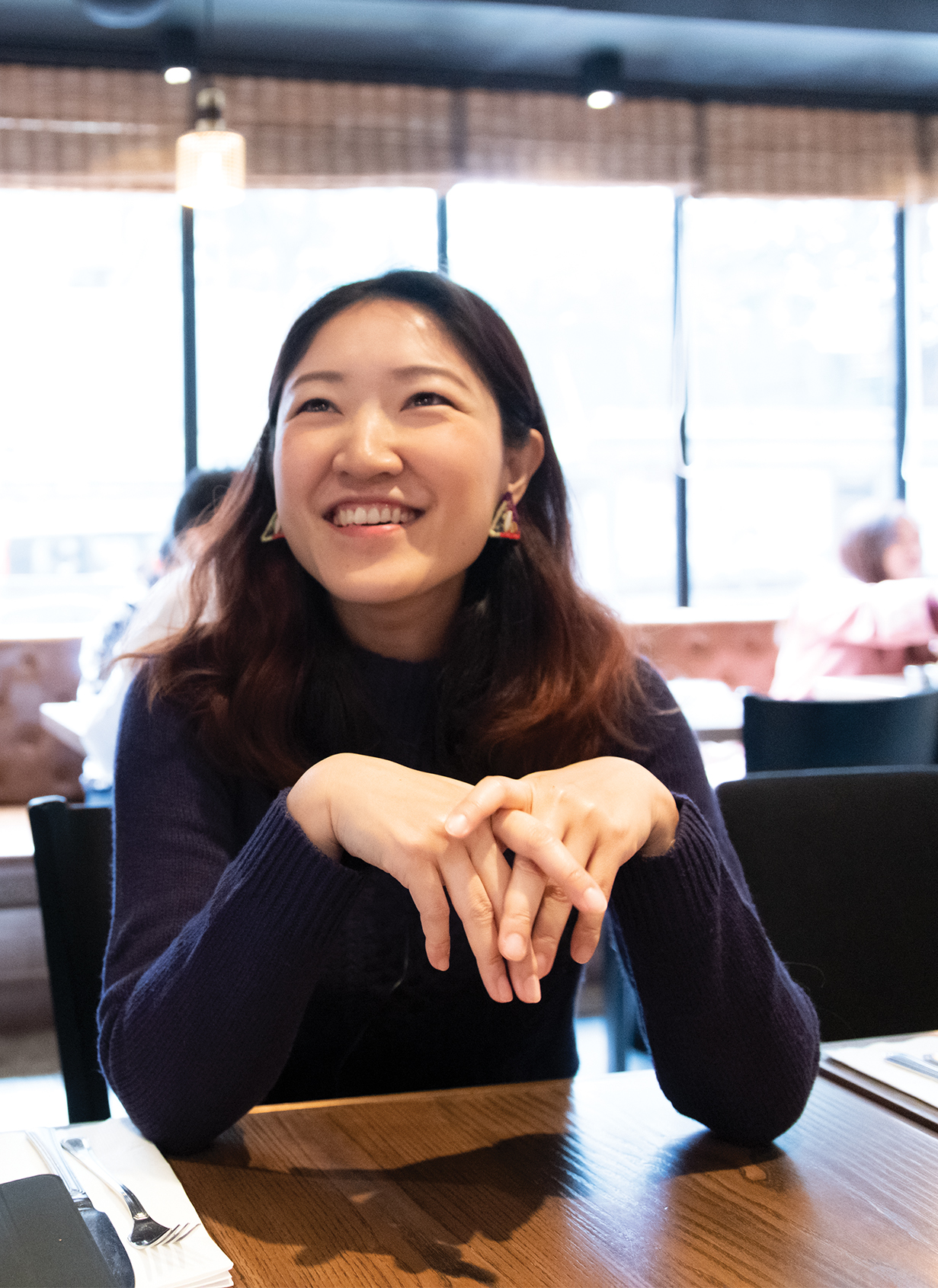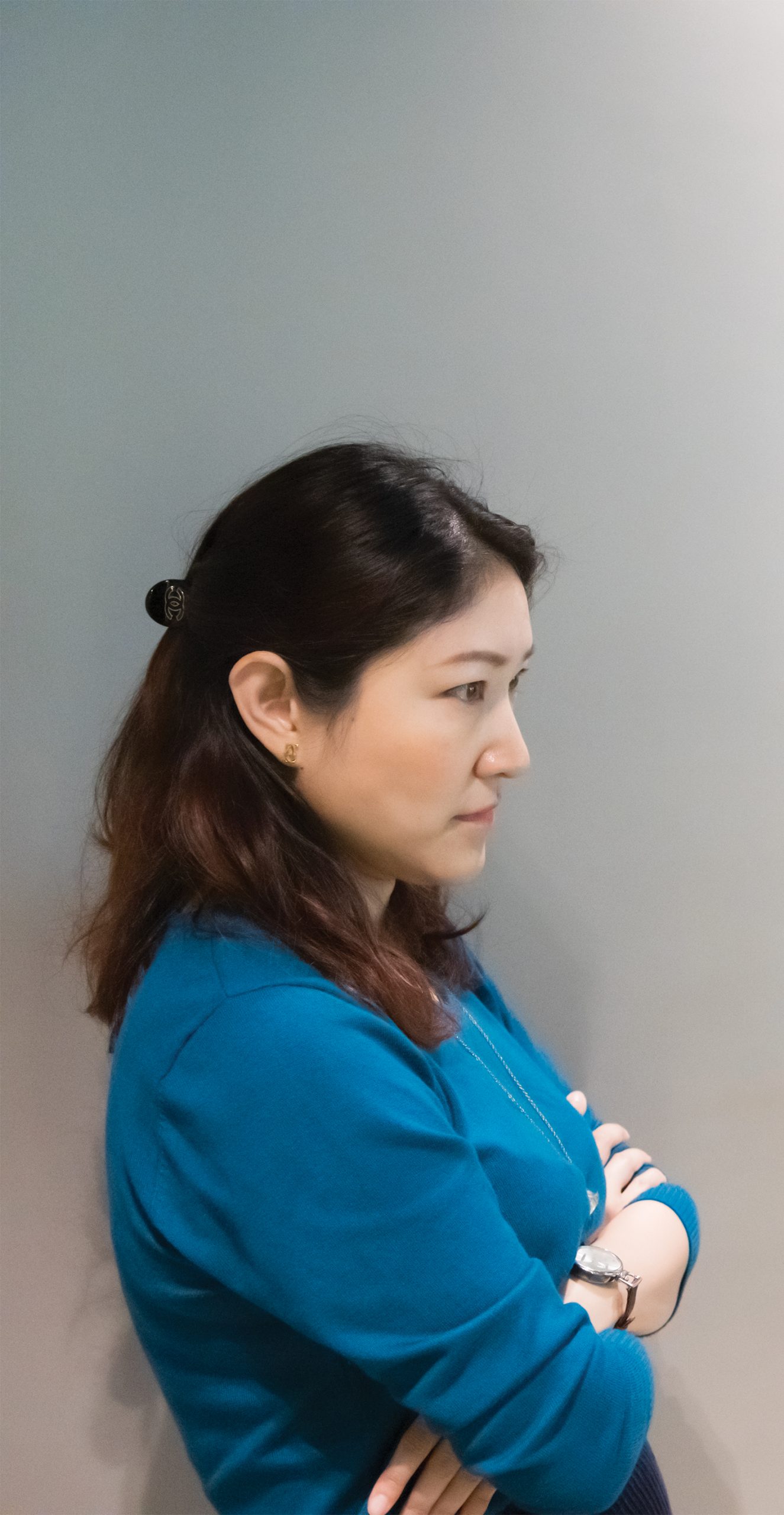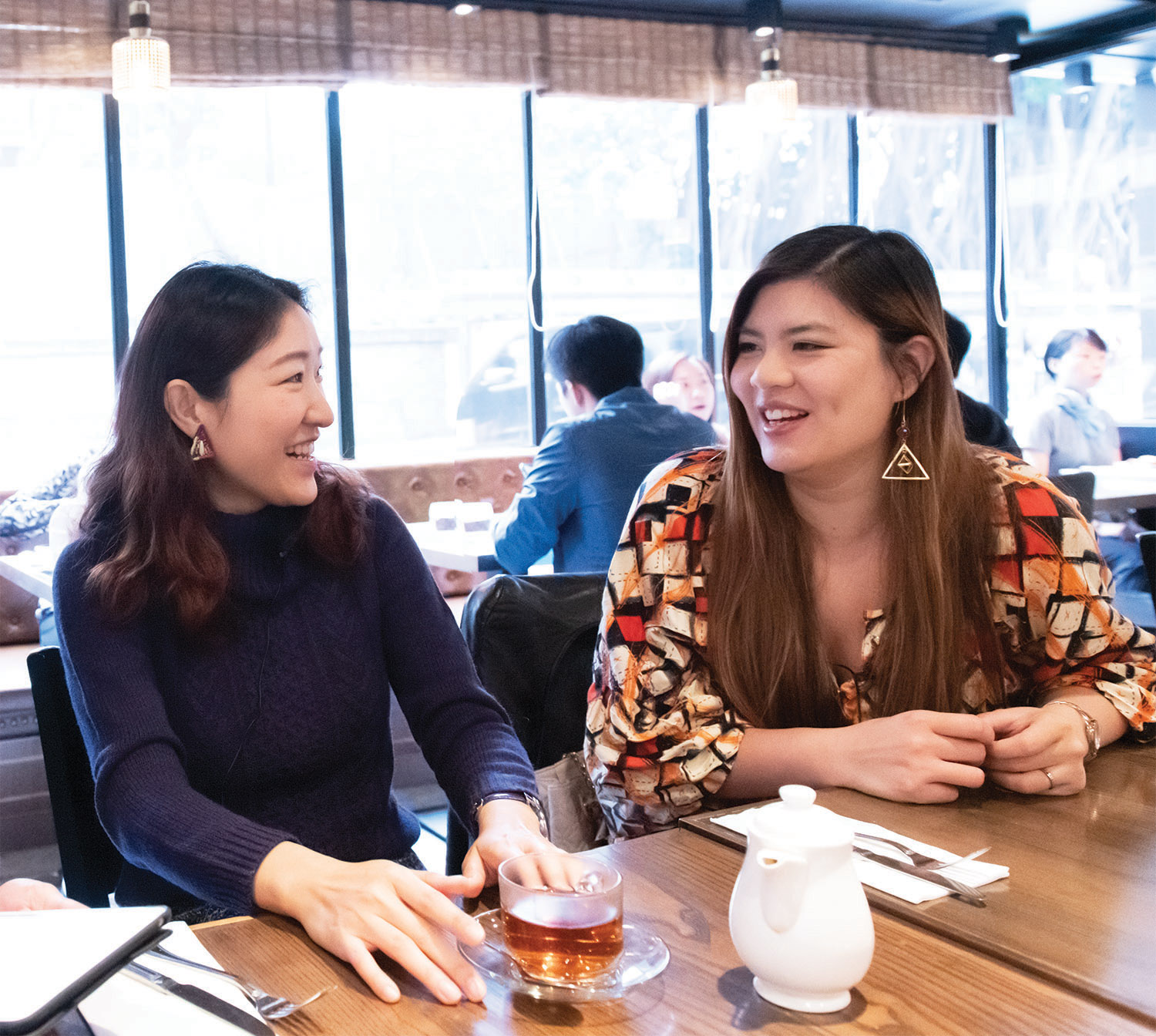Vantage Music & Carol Lin | Feb 2019 | Hong Kong
It was a bright and sunny morning. Outside, droves of Marathon athletes ran past as we interviewed Hong Kong-based composer-pianist Julie Kuok on her equally eventful musical career.

Small Beginnings
It all started with a toy keyboard. When she was four, Julie suffered from an unfortunate episode of contracting chickenpox, measles and mumps at the same time. Forced to stay at home, her mother bought her a toy keyboard to ease her boredom. “It was only around three octaves long,” Julie recalled, “but I had great fun playing with it, picking up the notes to tunes I heard from TV.” Born in a non-musical background, Julie’s mother initially thought nothing of it. It wasn’t until her neighbour commented on Julie’s talent that she brought Julie to piano classes, thus introducing Julie to the world of classical music.
We asked Julie what motivated her to practise when she was young. She pondered for a while. “At first, I think it was more from a sense of responsibility,” Julie concluded. The young Julie was very obedient and viewed the piano classes as yet another school activity. “I would feel guilty if I forgot to practise a piece that was assigned to me.”
This eventually drove her to develop a system of practice. “For each new piece assigned to me, I would analyse the score carefully. After grouping the similar parts together, I then divide them into six parts, learning one part each day over the course of a week.” With the maturity of an adult, Julie even started practicing the harder parts first, reasoning that she can always sight-read the easier parts on the last day if she fell behind schedule. It was no small feat for an eight-year-old child!
The young Julie was sometimes frustrated with herself. “There were often passages which I played wrong while practicing. Whenever that happens, I would get angry and slap my own hand as punishment. After a while, I realised that my hands weren’t the ones to blame – it was a problem with the coordination of the hand, so I tried to hit my head instead.” Fortunately, Julie didn’t go forward with her plan. “I was worried I would damage my brain!”
Grade Five Crisis
Learning the piano used to be all work and no fun. “When I reached grade five, the piano lessons were boring, and I wanted to quit. However, my mother encouraged me to persevere, asking me to pass grade eight before stopping.” With this promise, Julie begrudgingly continued the piano lessons.
As luck would have it, she mentioned the boredom to her classmates in St. Paul’s Convent School, and they offered a game-changing advice. “They invited me to go to their music centre and study under their piano teacher.” Even though the qualifications of the teacher weren’t terrific (she was only grade seven while Julie was already grade five!), she re-ignited Julie’s interest in music. “The teacher loved to make piano arrangements for popular pieces. I remember she once made a simplified arrangement for the Butterfly Lover’s Violin Concerto and asked me to play the piece in her yearly student recital.” Julie was inspired by the teacher’s passion, and she grew to love the piano again.
Role Models
As is with most teenage pianists, Julie was attracted to the dazzling brilliance of virtuosity. “When I was sixteen, I started to study under Professor Gabriel Kwok. For the first lesson, he asked me to prepare Bach’s Prelude and Fugue in C-sharp Major.” Julie happened to have a cassette recording of the piece by Sviatoslav Richter, and she listened to it intently. “I was blown away by the technical brilliance of Richter. It was like listening to a machine gun in action.” Enthralled by the recording, Julie returned to Prof. Kwok’s studio a week later, already playing at Richter’s speed.
Julie was quite satisfied with herself, but her teacher thought otherwise. “You are quite a fast-learner”, Prof. Kwok conceded after a few lessons, but cautioned her on the pitfalls of piano studying. “There are two types of pianists in the world: the first type learns pieces fast, while the second learns pieces slowly. After a while, however, it is the latter who plays more beautifully.”
Of course, the young Julie could not fully comprehend the message. To illustrate, Prof. Kwok played two notes, and asked his student to describe the difference. “But they sound the same, they are all ‘A’s!”, Julie would protest.
Over time, Julie gradually opened her ears, and noticed the imperceptible differences in music. Whenever Prof. Kwok demonstrated to her, Julie would wonder, “we are both playing the same notes – why does his music sound so much more emotional?”
Her role models gradually shifted also. “At first, Richter was some sort of a role model for me. I would often try to catch up to his technique and speed.” As Julie grew up, however, she strived for more. “People everywhere are playing at the same frenzied speed, and it didn’t catch my attention anymore.” Julie finally found what she was looking for when she went to a live performance of Martha Argerich one day. “I was sitting there in the audience, dreaming of other things, but as soon as Argerich played the first note, I was immediately entranced. Every note she played took off with a life of its own, and she held my attention throughout the whole recital. It was so fresh and special.” Julie never forgot that magical experience, and she cherished the quality of sound much more since then.
One Word to Wish Them All
We asked Julie what she thinks today’s industry needs most. She answered without hesitation, “love.” As a piano teacher, Julie came across a lot of unmotivated students. “I wish that all my students could find something that they love in music. That way, they could face the challenges in music, and find sufficient self-motivation to carry on.”
But love is only the first step to success. Even though it is an invaluable first spark, one will have to sustain the emotion through a deeper understanding of the underlying materials. “You have to understand enough to know why you should cherish it.”
It was with this mindset that Julie designed her radio show in Radio Television Hong Kong Radio 4. “The title of my show is ‘ABRSM piano exam’, but it is secretly much more than that.” Aiming beyond the exam-takers to their non-pianist parents, Julie hoped that she can show them how to appreciate music. “I used a lot of analogies and comparisons to facilitate understanding, and I also played the same phrases side by side, each time with different emotions and shapes. It is like those Disney soundtracks, but only in reverse – I am evoking a picture based purely on sounds. I want to link abstract music to their daily lives, to show that music is relevant to every one of us.”

A Liszt of Favourites
Throughout her performing career, Julie has developed a widely diverse repertoire. As is with every musician, there are favourites – for Julie, that piece is Liszt’s Piano Sonata in B minor. “I first performed this piece in 2006. The sonata sounds so enigmatic. It seems to be conveying a story, yet Liszt didn’t divulge what it is.”
In a textbook example of understanding facilitating love, Julie decided to find out more about the piece. “I eventually came across Alfred Brendel, who mentioned the Sonata as ‘a story of Faust’ in his book ‘Music Sounded Out’.” Brendel didn’t go into details, so Julie took it upon herself to flesh out the story. She analysed Liszt’s score intensively, identifying the multitudinous thematic transformations and linking them to key scenarios from Goethe’s play. “It was like completing a jigsaw puzzle. When I finally matched them together, I was exhilarated.”
Liszt’s Sonata also appealed to the composer side of Julie. “As a composer, I was amazed at how Liszt masterfully weaved a fully-developed story into a highly virtuosic piece of abstract music, altering the pitch and rhythm, sometimes even inverting the theme to suit his storytelling needs.”
Julie quoted the exposition of the first part for us. “The descending scale at the start signifies a human corrupted at birth. Angels and demons wage war against each other inside the human’s mind, weakening him. When the human nearly collapses from exhaustion, the devil tries a different approach, disguising as a girl to seduce him. This is the second theme, which is transformed from the demon motif.”
Budding Composer
Since the separation of composing and performing as a profession in the 1900s, performers who compose well are rare, let alone those who are successful in both. Julie is one of the fortunate ones, and she is happy to tell us how this curious facet of her musical life came to.
“I wrote my first composition in Form Six as a gift to a classmate. It was a four-movement Schumann-eqsue piece with heavy Japanese soundtrack influences, telling the story of a cat and a fish. I remember binding it carefully, even illustrating the story on the margins.” The gift was well-received, and this bolstered Julie’s resolve to become a composer, pursuing a minor in composition during her studies at the Oberlin Conservatory in Ohio. Julie went on to study composition at the Hong Kong Academy for Performing Arts, but her frequent concertizing at that time prevented her from completing any major works.
Julie’s break as a composer came in 2000, when she partnered with Hui Ling to form the “HKDuo” (taken from the initials of the two’s last names). “To enrich our repertoire, both of us would take turns arranging famous classical or jazz tunes for 2 pianos. Sometimes I would even compose original pieces and ask Hui Ling to premiere it with me.”
HKDuo’s round-the-world concerts brought valuable exposure to Julie both as a performer and as a composer, eventually landing her exotic commissions such as ‘Ode to Yardang’ for piano and orchestra (premiere with the Xinjiang Philharmonic Orchestra); ‘Mahjong On Stage!’ for 4 pianists on 4 pianos and a video clip; ‘Tableau for 48 fingers’ for 24 pianists on 4 pianos; and ‘Pomegranate’ for 24 pianists and a piano technician on 4 pianos.
Fantasy of Little C
In 2017, Julie published a set of ten short pieces, titled ‘The Fantasy of Little C’. As a testament to Julie’s compositional standing, the second piece in the album, “Two Kids on Horseback”, was selected as one of the set pieces in the 2019 Hong Kong Schools Music Festival.
Julie described the making of the piece. “I actually have to thank Ms. Nancy Loo for the inspiration. Whilst chatting with her one day, she casually mentioned that I had composed a lot for myself or my colleagues but had yet to write any for my students.” Thus, Julie set to work, and decided to start her first pedagogical composition with a mix of contemporary Chinese and Western styles. “I googled some Chinese four-character idioms that started with one to ten, then picked my favourite one from each number.” Using the descriptive titles as a starting point, Julie wrote a series of exploratory pieces, detailing the journeys of a Chinese boy, Little C, through lands of sympathy and love, worlds of evil and righteousness, and into the unknown.
The ninth piece, ‘Beyond the Clouds’, holds a special place in Julie’s heart. “As I was beginning this piece, I received news that a friend’s 90-year-old godmother passed away,” Julie recounted. “She was particularly fond of Korean movies, so I modelled this piece after their soundtracks.” The marked difference of this piece’s style against the other nine pieces drew concerns from her teacher, but Julie stood her ground, defending that “even the Garden of Eden had an exception – let Beyond the Clouds be the Tree of Knowledge to the Fantasy of Little C!”

Creative Influences
We are interested in how being a composer affected Julie’s artistic interpretations as a performer. Julie thought for a moment before answering, “It is more than artistic interpretations. Through composing, I learnt more about myself, especially on my thought processes.”
Julie claimed that her young self didn’t have much plans. “It shows in my compositions – ideas abound throughout the piece, but they lack a coherent structure and development. Sometimes, towards the end, they even run out of breath, ending as if they had just finished a catastrophic marathon!” Julie noticed her shortcomings and set out to improve her control. “I learnt from Rachmaninoff, who kept repeating the same motives in his preludes, yet never sounded boring and repetitive.” As a remedy, Julie forced herself to take more time with each idea and develop each melody at least once in the piece. She also started to outline the structure of each piece before writing any note, forcing herself to rely less on improvisation and more on planning.
Another thing Julie learnt to appreciate as a composer is the writing of transitions. “I used to think that they are merely filler materials, a necessary evil for modulations or developments.” As Julie started to compose, however, the transitions gradually made sense. “They are like descriptive scenes in novels, like the birds next to the lovers on a balcony – they exist to provide character and contrast to the main themes, and of course to foreshadow and hint at what is to come.”
Metamorphosis
Julie will be partnering with mezzo-soprano Carol Lin and violist Ringo Chan for a recital on 8th June 2019. She is excited to share details of the programme with us. “The recital will be called ‘Metamorphosis’. There will be pieces by Schubert and Bridge, but most importantly a lot of songs from Mahler.”
Julie also explained what the title is about: “Similar to Fantasy in Little C, the recital is a story about the journey of a Chinese protagonist, only this time our main character will be Carol. Metamorphosis refers to Carol surrendering to the music and coming out anew. I hope that the audience will also go along with our music, and that everyone who come out of the concert will find something memorable to take away.”
Interviewed by Vantage Music, Carol Lin; written by Chester Leung

